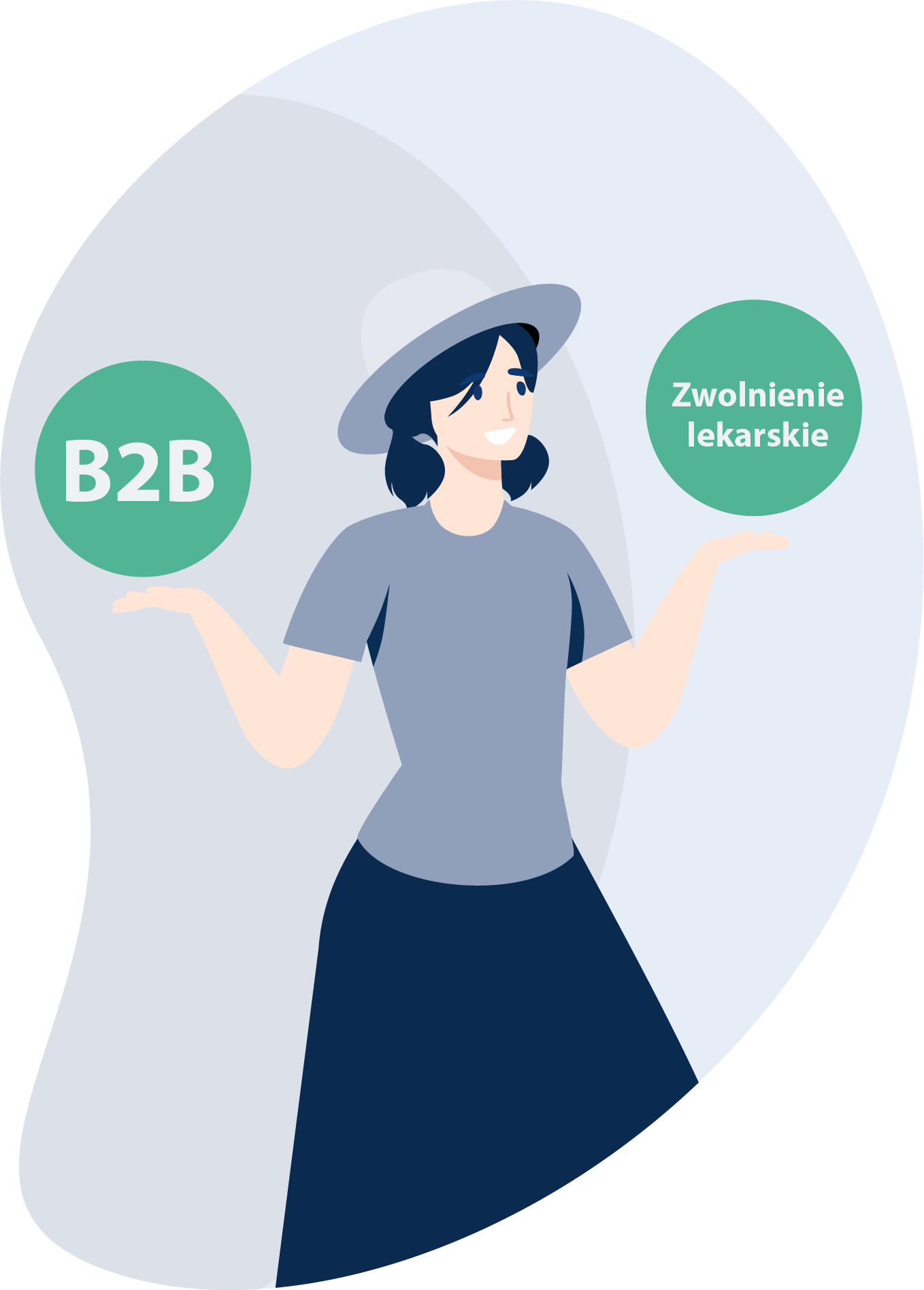Are you facing the choice of contract employment or B2B contract and don’t know what to choose? Are you concerned about health issues? In both cases, the rules are radically different. Which option will be better for you? Read the article and learn about the most common myths about illness during employment under a B2B contract.
What is a B2B contract?
B2B, or “business to business,” is a contract regulated by the Civil Code between two business entities. Requires registration of a business – in the form of a company or JDG (sole proprietorship). Its basic feature is the partnership of both parties to the agreement. Along with this also comes greater freedom in defining the subject of a given assignment, and higher liability than when acting under an employment contract.
We wrote about the comparison of B2B and UoP HERE.
What are the most common myths about a B2B contract?
We break down the biggest myths about B2B contracting. Do they have a raison d’être? We will dispel all doubts once and for all.
When working on a B2B contract, you can’t get sick
It’s a fact that illness doesn’t exempt an entrepreneur from performing his tasks and duties related to running a business, such as filling out VAT returns, Social Security, paying social security, or daily expenses such as ongoing rent, electricity, etc.
When it comes to tasks performed for your principal, it’s worth including clauses in your B2B contract such as free interruption of services, and billing based on hours worked or service performed. Thus, they will regulate unforeseen situations like illness, etc. Such a provision will allow more flexibility in organizing time, and responsibilities, and less stress.
Illness on a B2B contract = no income
To protect against such situations, it is possible to insure against illness.
How to do it?
- in the Social Security under voluntary sickness insurance,
- With a private insurer under loss of income or hospitalization. They will guarantee payment of the benefit in situations of temporary inability to work due to illness or accident.
It’s not worth paying sickness premiums when Social Security sickness insurance is voluntary
The amount of sickness benefit depends on the contributions paid. Before you decide not to invest in Social Security sickness insurance, analyze the potential benefits. If you have paid contributions for 90 days preceding the illness, you are entitled to a benefit equal to 80% of the amount of your salary base. A person with a JDG taking advantage of preferential Social Security and paying a lower contribution, unfortunately, cannot count on much support.
In the decision-making process over the payment of sickness premiums, consider the fact that it applies not only to the payment of benefits during illness.
- Sickness benefits – you receive 80% or 100% of your salary for no more than 182 days. In the case of inability to work due to tuberculosis, or is it, during pregnancy – such benefits can be received for a maximum of 270 days.
- Rehabilitation benefit – collectible for 12 months. This right applies when you have used up the opportunity to collect sickness benefits, and you need further treatment/rehabilitation to restore your ability to work.
- Maternity benefit – for the time after the birth or adoption of a child.
- Carer’s allowance – in situations where it is necessary to care for a child under 14 or other sick family member
It may be beneficial to pay sickness insurance premiums if there is a chance that any of the situations cited above will occur.
Illness = compulsion to suspend business
There is no need for this. However, remember to follow the key rules.
Do not perform gainful employment, this even applies to business-related activities, while receiving Social Security benefits. Only formal activities necessary for the operation of the company are allowed, i.e.: personnel matters, payment of rent, and signing of documents.
If an entrepreneur has not joined the voluntary sickness insurance from his business, while he is employed on UoP and is on full-time L4, he should refrain from working in his private business as well.
Paid health leave in the announcement for work
Companies in this case use provisions for interruption of services that do not result in loss of wages. Unfortunately, it is not possible in a B2B contract to have a provision precisely regulating the issue of leave, since this is a feature of employment contracts. It is worth looking carefully at such provisions in advertisements.
When choosing a contract, based on a B2B contract, it is crucial to understand certain issues to better manage your time, and tasks and act in the face of unforeseen situations, so that your financial situation does not suffer due to a lack of information and knowledge of the subject.

